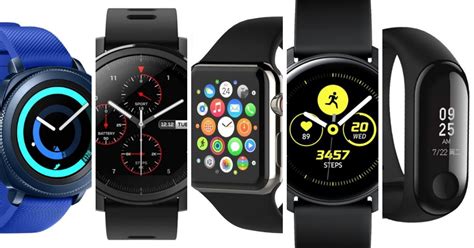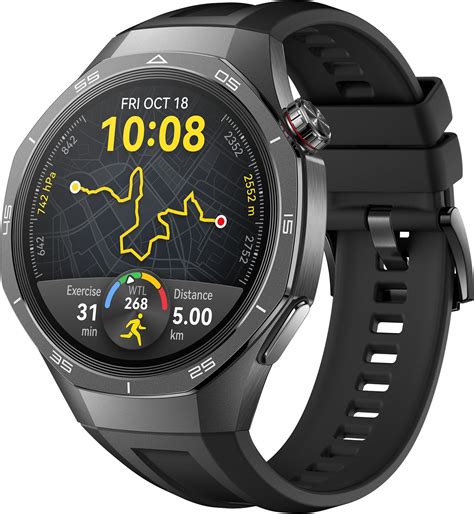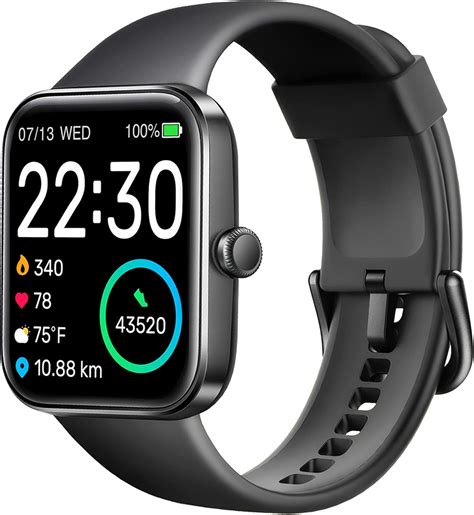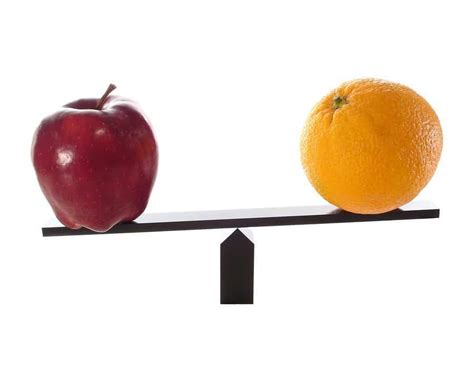Smartwatch for peak performance: Which features truly matter for tracking & recovery?

Unlocking Your Full Potential with Smartwatches
In the relentless pursuit of peak physical performance, every edge counts. Smartwatches have evolved from simple step counters into sophisticated personal trainers and recovery coaches, offering a wealth of data to optimize your training. But with countless models and an overwhelming array of features, how do you discern what truly matters for both tracking your efforts and ensuring adequate recovery?
This guide cuts through the noise, highlighting the indispensable features that empower you to train smarter, recover more effectively, and ultimately, achieve your performance goals.

Essential Tracking Features for Performance
Precision GPS and Multi-Sport Modes
For runners, cyclists, hikers, and anyone who trains outdoors, accurate GPS is non-negotiable. It tracks distance, pace, and route mapping, providing critical insights into your workout structure. Look for multi-band GPS support (e.g., dual-frequency GPS) for enhanced accuracy, especially in challenging environments like urban canyons or dense forests.
Beyond GPS, robust multi-sport modes allow you to seamlessly switch between activities – running, swimming, cycling, strength training – with specific metrics tailored to each. This ensures comprehensive data capture, regardless of your chosen discipline.
Advanced Heart Rate Monitoring (HRM)
Heart rate is the cornerstone of effective training. Modern smartwatches offer continuous optical heart rate monitoring, but accuracy varies. For serious athletes, look for devices with high-fidelity sensors and, ideally, the option to pair with external chest straps for superior accuracy during intense workouts. Key HR metrics include:
- Resting Heart Rate (RHR): A key indicator of cardiovascular fitness and recovery status.
- Heart Rate Zones: Essential for structured training, ensuring you’re working at the right intensity for endurance, fat burning, or peak performance.
- HRV (Heart Rate Variability): A powerful metric for assessing your nervous system’s response to stress, training, and recovery.

Crucial Recovery Features
Comprehensive Sleep Tracking
Recovery isn’t just about rest; it’s about quality sleep. Advanced sleep tracking monitors sleep stages (REM, deep, light), duration, and interruptions. Devices that offer a “sleep score” or personalized insights can help you understand your sleep patterns and make adjustments for better rest, which is vital for muscle repair and cognitive function.
Stress Monitoring and Body Battery
Chronic stress, whether physical or mental, impedes recovery. Many smartwatches now incorporate stress tracking, often derived from HRV data, to provide real-time insights into your stress levels throughout the day. Features like Garmin’s “Body Battery” or similar metrics from other brands estimate your energy reserves, helping you decide if you’re ready for a tough workout or if a recovery day is more appropriate.
Blood Oxygen (SpO2) Tracking
While not a primary training metric for all, SpO2 (blood oxygen saturation) tracking can be beneficial for monitoring sleep apnea, acclimatization to high altitudes, or general respiratory health. A drop in SpO2 during sleep could indicate an underlying issue affecting recovery.

Beyond the Basics: Enhancing Performance and Longevity
Battery Life
A feature-rich smartwatch is useless if its battery dies mid-run or before you can track a full night’s sleep. Prioritize models with excellent battery life, especially if you engage in multi-day activities or prefer not to charge daily. Devices offering power-saving modes or solar charging can be game-changers.
Durability and Design
For active individuals, a robust design that can withstand sweat, impact, and water is crucial. Look for watches with Gorilla Glass or sapphire crystal displays, water resistance ratings (e.g., 5 ATM or 10 ATM), and comfortable, durable straps.
Training Load and VO2 Max Estimation
Many high-end smartwatches offer advanced physiological metrics like Training Load, which assesses the cumulative impact of your workouts over time, and VO2 Max estimation, a key indicator of cardiovascular fitness. These insights help prevent overtraining, optimize periodization, and provide a clear picture of your fitness progression.
Some even offer recovery advisors that recommend rest periods or specific recovery activities based on your recent training and current physiological state.

Making Your Choice: Aligning Features with Goals
The “best” smartwatch isn’t one with the most features, but one that best serves your individual needs and goals. Consider your primary activities, how intensely you train, and your budget. Are you an ultra-runner needing supreme battery life and GPS accuracy? Or a general fitness enthusiast focusing on daily activity, sleep, and stress management?
Invest in a smartwatch that provides actionable data, not just raw numbers. Features that offer personalized coaching, recovery recommendations, and long-term trend analysis will be far more valuable in driving peak performance than a multitude of unused gimmicks.

Conclusion
Smartwatches are powerful tools for anyone serious about optimizing their physical performance and overall well-being. By focusing on essential tracking features like precise GPS and advanced heart rate monitoring, alongside crucial recovery metrics such as comprehensive sleep analysis and stress tracking, you can transform raw data into actionable insights. Choose wisely, and let your wearable be your guide to unlocking new levels of fitness and performance.






